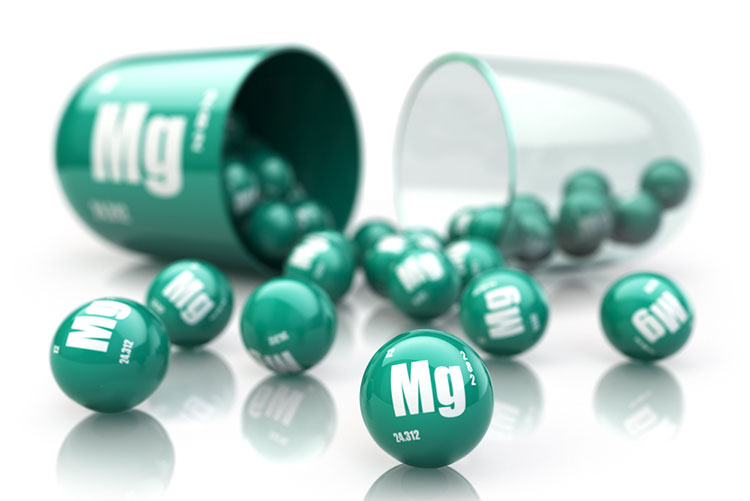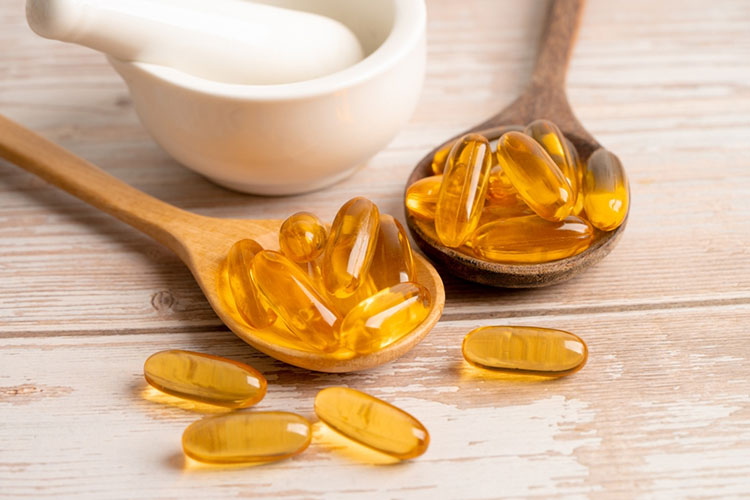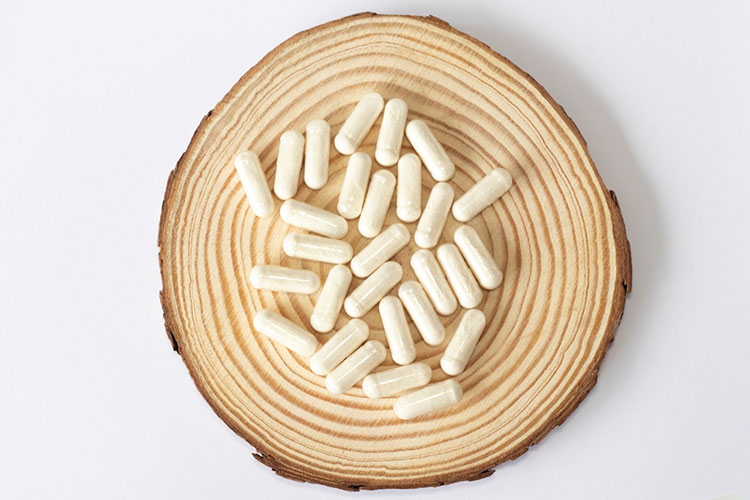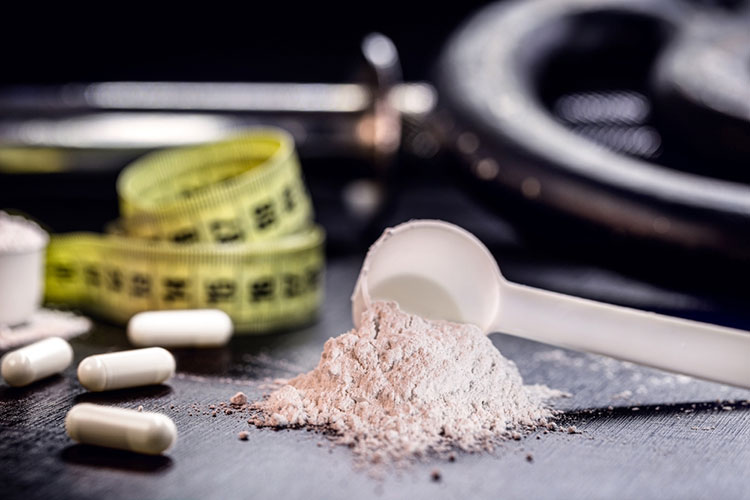Keto diet supplements are part of ketogenic diet plan because this diet is a very low carb and very high fat diet plan, and since it restricts many foods, it is necessary to get some of them under your doctor’s supervision to avoid vitamin deficiency.
It should be noted that the keto food supplements can help the dieter reduce his symptoms during the keto fever period and increase his performance in training with a low carbohydrate diet.
In the following, you will get to know the best keto supplement that you can use during the ketogenic diet:
Introduction of Keto supplements
Keto supplements are vitamins and minerals that are generally prescribed by a nutritionist so that your body can perform better during the keto diet:
Magnesium
Magnesium is a mineral that boosts energy, regulates blood sugar and supports the immune system.
Research has shown that many people are now at the risk of magnesium deficiency due to magnesium-depleting medications, increased use of processed foods, and other factors.
In the ketogenic diet, it becomes more difficult to meet the magnesium needs of the body because many foods containing magnesium, such as legumes and especially beans, as well as fruits, are rich in carbohydrates, which are prohibited in this diet.
For this reason, during the ketogenic diet, taking 200 to 400 mg of magnesium per day can be enough for you. Keto diet supplements like magnesium can help reduce muscle cramps, insomnia, and irritability.

Some of the most absorbable types of magnesiums are magnesium glycinate, magnesium gluconate, and magnesium citrate. If you want to get magnesium through the right foods for a ketogenic diet, focus on these low-carb foods: spinach,
- avocado,
- beetroot,
- pumpkin seeds
- and fish
MCT Oil
Medium-chain triglycerides, or MCTs, are a popular supplement among ketogenic enthusiasts. These are metabolized differently than long-chain triglycerides (the most common type of fat found in foods).
MCTs are broken down by the liver and enter the bloodstream very quickly. There they can be used as a source of energy for the brain and muscles.
Coconut oil is one of the richest natural sources of MCT, meaning that about 17% of its fatty acids are medium chain triglycerides.
The use of MCT oil provides the body with a significant amount of this type of fat and can be beneficial for those following a ketogenic diet.
Keto diet supplements containing MCT are very useful for the ketogenic diet because they increase your fat intake very quickly; As a result, ketone levels increase and help you stay that way.
Also, taking this supplement can help to lose weight and increase the feeling of fullness. You can simply add MCT oil to your shakes and smoothies or simply eat a spoonful of it. It is best to start taking medium chain triglyceride oil at a low dose (one teaspoon or 5 ml) to see how your body reacts to it.
Later, you can increase your consumption according to the guide. MCT oil can cause symptoms such as diarrhea and nausea in some people.
Omega-3 fatty acids
Omega-3 fatty acids supplements such as fish oil are another ketogenic diet supplement rich in omega-3 fatty acids, eicosapentaenoic acid (EPA) and docosahexaenoic acid (DHA), which have many health benefits.
These two acids can reduce inflammation, reduce the risk of heart disease and prevent dementia.
Most people’s diet today consists of vegetable oils, processed foods, and omega-6 fatty acids and not much omega-3.

This imbalance can increase inflammation and the risk of inflammatory diseases.
Omega-3 supplements are very useful for those following a ketogenic diet because they can balance the ratio of omega-3 to omega-6 while following a high-fat diet.
Vitamin D
Vitamin D is another keto food supplement that you should take as needed under the supervision of your doctor. Getting enough vitamin D is important for everyone’s health, including people following a ketogenic diet.
A ketogenic diet does not necessarily put you at the risk of vitamin D deficiency, but since vitamin D deficiency is common, taking vitamin D supplements seems necessary.
Vitamin D is necessary for many body functions, including facilitating calcium absorption, especially in people who suffer from lactose intolerance.
Vitamin D is also responsible for supporting the immune system, regulating cell growth, increasing bone health, and reducing inflammation in the body.
Since few foods are sources of this very important vitamin, many health professionals recommend using vitamin D supplements.
Digestive Enzymes
One of the common complaints of those new to ketogenic diet is that the high volume of fat puts pressure on their digestive system.
Since the ketogenic diet usually consists of more than 75% fat, those who previously used low-fat diets may also experience stomach upset symptoms such as nausea and diarrhea.
In addition, even though the amount of protein is normal in the ketogenic diet, this amount may be more than what people used before, which can cause digestive problems.

If you experience digestive problems such as nausea, diarrhea and bloating when starting the ketogenic diet, using keto diet supplements containing digestive enzymes that contain fat and protein breakdown enzymes will help improve your digestion.
Proteolytic enzymes, which are enzymes that break down and digest proteins, can reduce pain after exercise.
Exogenous ketones
Exogenous ketones are ketones that enter the body from an external source, endogenous ketones are of a type that is produced naturally by your body and the process of their production is called ketosis.
Exogenous ketone supplements are usually taken by people who follow a ketogenic diet and want to increase their blood ketone levels.
Exogenous ketone supplements have other benefits besides helping you get into ketosis faster. For example, these supplements can help improve sports performance, speed up muscle recovery, and reduce appetite.
Electrolyte Supplements or Mineral Rich Foods
Focusing on mineral supplementation during the ketogenic diet is very important, especially when you’re just starting out. The first few weeks can be very challenging as the body is getting used to cutting carbs.
In addition, this diet can lead to increased water, sodium, potassium, and magnesium levels loss, and keto symptoms such as headaches, muscle cramps, and fatigue.
Athletes following the keto diet may lose more electrolytes through sweating than others. Adding sodium through diet is the best solution. You can easily add more salt to your food.

Increasing intake of foods rich in potassium and magnesium can also deal with this problem.
Dark green leafy vegetables, nuts, avocados, and seeds are all good keto foods that are high in magnesium and potassium.
Electrolyte supplements contain sodium, potassium and magnesium, which you can get from pharmacies.
Green Powder
Increasing the consumption of vegetables is a topic that everyone should focus on. Vegetables contain a variety of vitamins and minerals, as well as compounds that fight inflammation, reduce the risk of disease, and help the body function healthily.
A ketogenic diet usually reduces the consumption of vegetables. One of the quick and easy ways to increase your vegetable intake is to add green powder to your dietary supplements.
Most green powders contain a combination of plant powders such as spinach, spirulina, cabbage, broccoli and other vegetables.
You can add green powder to shakes, smoothies and drinks. Also, people who follow a ketogenic diet can add whole foods and low-carb vegetables to their meals and snacks to get vitamins and minerals from food.
Useful supplements to enhance athletic performance
Athletes who follow a ketogenic diet and want to enhance their performance can use these supplements:
Creatine monohydrate: Creatine monohydrate is one of the dietary supplements that has been studied and shown to increase muscle growth and improv sports performance.
Caffeine: An extra cup of coffee or green tea can benefit athletic performance and boost energy levels, especially in athletes new to the ketogenic diet.

Branched chain amino acids (BCCA): These supplements can reduce exercise-related muscle damage, muscle soreness, and fatigue during exercise.
HBM (Beta-Hydroxy-Beta-Methyl Butyrate): HBM can prevent muscle wasting, especially in people who are new to exercise or have increased their exercise intensity.
Beta-Alanine: Taking keto beta-alanine supplements when following a ketogenic diet can prevent fatigue and muscle loss.
Is it allowed to take effervescent tablets in a ketogenic diet?
Normal effervescent tablets because they contain sugar are not suitable for fans of this diet, and they should use special keto effervescent tablets that contain a full range of vitamins and minerals such as vitamin B6, vitamin B3 (niacin), L-glutamine, potassium, magnesium, sodium and aminobutyric acid.
Bottom line
Keto diet supplements should be taken under the supervision of a nutritionist to avoid the side effects. As you know, the keto diet is a weight loss program with high fat, moderate protein, and very low carbohydrates, and one of the long-term effects of the keto diet is lack of nutrients, and keto supplements can prevent keto complications.
First of all, make sure you eat plenty of foods rich in magnesium, calcium, iron, vitamin D, and fiber. However, if you can’t reach your goals, talk to your doctor about a keto supplement.

Leave a Reply